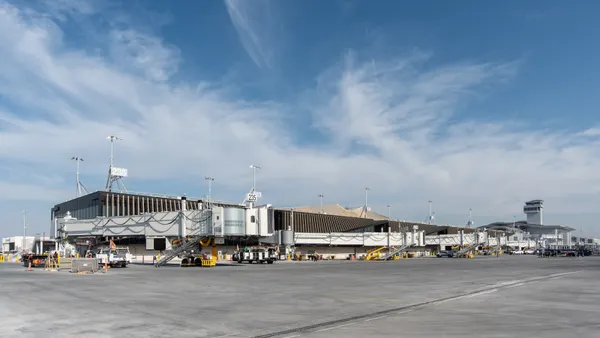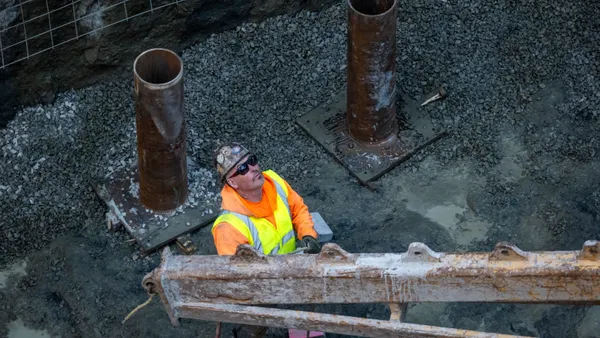Dive Brief:
-
Federal Reserve officials announced Wednesday they will keep interest rates unchanged, but they also kept the possibility of a December rate hike alive in their official statement. Wednesday's decision marks the seventh complete year that the Fed held short-term interest rates near zero.
-
The Fed committee cited slowing job growth and a steady unemployment rate as reasons for caution when deciding whether to raise the rates. However, officials said, "the committee continues to see the risks to the outlook for economic activity and the labor market as nearly balanced."
-
After the Fed's two-day meeting, officials said they are still keeping an eye on economic conditions abroad. Unlike during the September meeting, they did not cite global risk as having a negative impact on the U.S. economy.
Dive Insight:
Before Wednesday's meeting, the majority of financial experts were certain the Fed wouldn't raise rates, and only 34% predict an increase in December. Most expect the hike to occur in March.
Homebuilders are keeping a close eye on interest rates, as some fear an increase would deter potential buyers from making the move from renting to owning — thus reducing the number of potential buyers for their new properties.
But officials and economists have said the slow rise in rates will not result in crippling effects for the housing market or for builders counting on a continued recovery in the residential industry.
And in an August Reuters poll, economists agreed that a rate increase is unlikely to be significant enough to price buyers who are in good economic shape out of the housing market.
When the Fed finally raises short-term interest for the first time in almost a decade, the increase won't automatically affect mortgage rates, as the Fed doesn't control those rates. But a decision to raise the short-term Federal Funds Rate will almost certainly influence the investors who determine mortgage rates. That has been the case throughout history, as home loan rates have increased after the Fed's short-term rate hike decisions.
Fed officials have repeatedly said they would not consider implementing a rate bump if they weren't confident the economy is strong enough to handle it.
Compared with mortgage rates at their peak in October 1981, when they reached 18.45%, the cost of a home loan is currently near historic lows. In fact, interest rates never dipped below 5% since Freddie Mac started keeping track in 1971 until 2009. Except for a couple of months in 2010, interest rates have not topped 4.99% since then.












